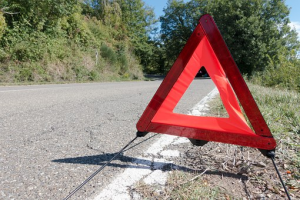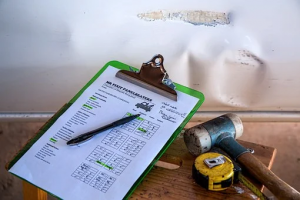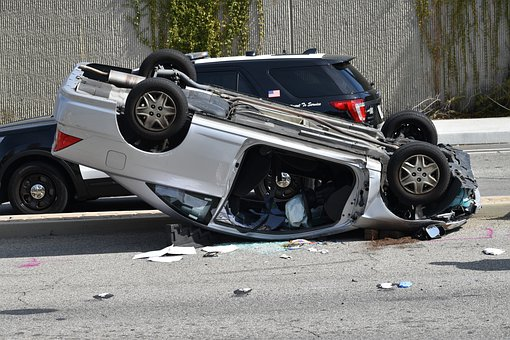You’ve just been involved in an accident on a hot summer day, so it’s most likely that you’re also frustrated with the weather, everyone is yelling, there’s traffic piling up behind you and it’s driving everyone crazy because the boys in blue haven’t shown up yet. These are just everyday situations that have become so common on our roads.
As a motorist, you’ve in countless times witnessed road rage and it’s most likely that you wished the other motorist could find a better way to resolve their issues, right? Well, it happens, but it shouldn’t be so. Ever heard of cops telling an arrested fellow that they had the right to remain silent or anything they say or do will be used against them in the court of law? This is known as the Miranda warning. In a way, the same should apply to drivers after an accident. Whatever you do or say after an accident matters a lot. Your actions after an accident can significantly affect the value of your personal injury settlement. To cut to the chase, below are tips on how to properly handle a car accident.
1. Keep Your Cool
If you’ve been involved in an accident as a result of someone else’s negligence and reckless driving, it’s very easy to feel as though you want to slap the daylight out of them. This is given but one thing to note is that you’ll not be able to help yourself or anyone else for that matter out of the situation with all that anger boiling inside your core.
The idea is to never lose your temper whenever you’ve been involved in an accident. This will usually involve minor accidents such as fender benders where either of the drivers are not hurt and there are but minor damages to the vehicles. But the same cannot be said about serious road accidents. And while it might seem like the best thing to do is call your attorney right away (and you should if it’ll help you to stay calm), the guys at Davis Firm insist on first maintaining your cool and preventing yourself from fast reactions. You just don’t want to wake up the morning after and regret the actions you took on the previous day. So, picture yourself in a different place having a taco and if you can, concentrate on your breathing. It will help you to regain your composure.
2. Call 911
Immediately after you’ve been involved in an accident, do not hesitate to call the emergency numbers in your state. The operators on your line are trained in stress management issues and they’ll help restore your cool. Most importantly, it’s really not about anger management, but to ensure that anyone who’s involved in the accident is okay. In addition to this, they’ll send emergency responders to the scene of the accident to ensure that your injuries are addressed and you’re taken to an emergency unit to receive further treatment. Calling 911 will also play a crucial role in bringing the police to the scene of the accident. They’ll help in documenting the accident and in gathering any crucial information concerning the accident. The dispatcher may require that you give them your current location, your full names, the circumstances surrounding the crash, and whether there are others involved.
3. Move Your Car To The Side

If it’s a minor accident and the cars can move when prompted, it’s advisable to move your vehicle to the side where it’s out of traffic and out of harm’s way. This is especially around blackspots and in areas that may pose grave risks to other motorists when the vehicles are left on the same spot. Among other things you can do when involved in an accident include placing reflective triangles, cones, or flares some distance behind your car, and switching on the emergency flashers. This will also be helpful in the wee hours of the night or in bad weather. But only do this if you’re able to. If not, seek help from other motorists as you wait for emergency responders.
4. Inform Your Insurer
After an accident, whether minor or major, ensure that you’ve informed your insurance company about the accident as soon as possible. If you can, do it while you’re still at the scene of the accident. Ideally, they’ll want to be provided with more details. So, before calling your insurer, ensure that you’re aware of your surroundings, location, and the situation you’re in. The insurance company will provide you with financial relief in taking care of the damages and most importantly, the cost of treating your injuries.
5. Gather Information

This will all depend on the nature of the accident because if it’s a serious accident, you’ll want to stay put and wait for the emergency professionals to get to the scene of the accident. If you’re able, you may approach the other driver and request that they provide you with their license, registration number, their names, and address. If there are witnesses around, you can always gather more information on the circumstances that led to the accident from credible eyewitnesses. It doesn’t hurt if you include photos of the scene of the accident. They’ll help you in recounting some details. This information will be crucial in determining the outcome of your personal injury claim and when dealing with insurance adjusters.
6. Call Your Attorney
Depending on the nature of the accident, especially when you’re not sure of what happened, then your personal injury attorney will come in handy when it comes to dealing with the insurance company, the police, and anything else that may concern the accident. Your attorney will be the right person to call when you’re out of options.
Now, all this can seem like a lot to ask, especially considering that you’ve just been through a horrific ordeal. You’ll most likely feel like you’re overwhelmed, in pain, feeling guilty, and engulfed with terror. But with the police on the scene of the accident and the ambulances on standby, they can help take care of the rest.

